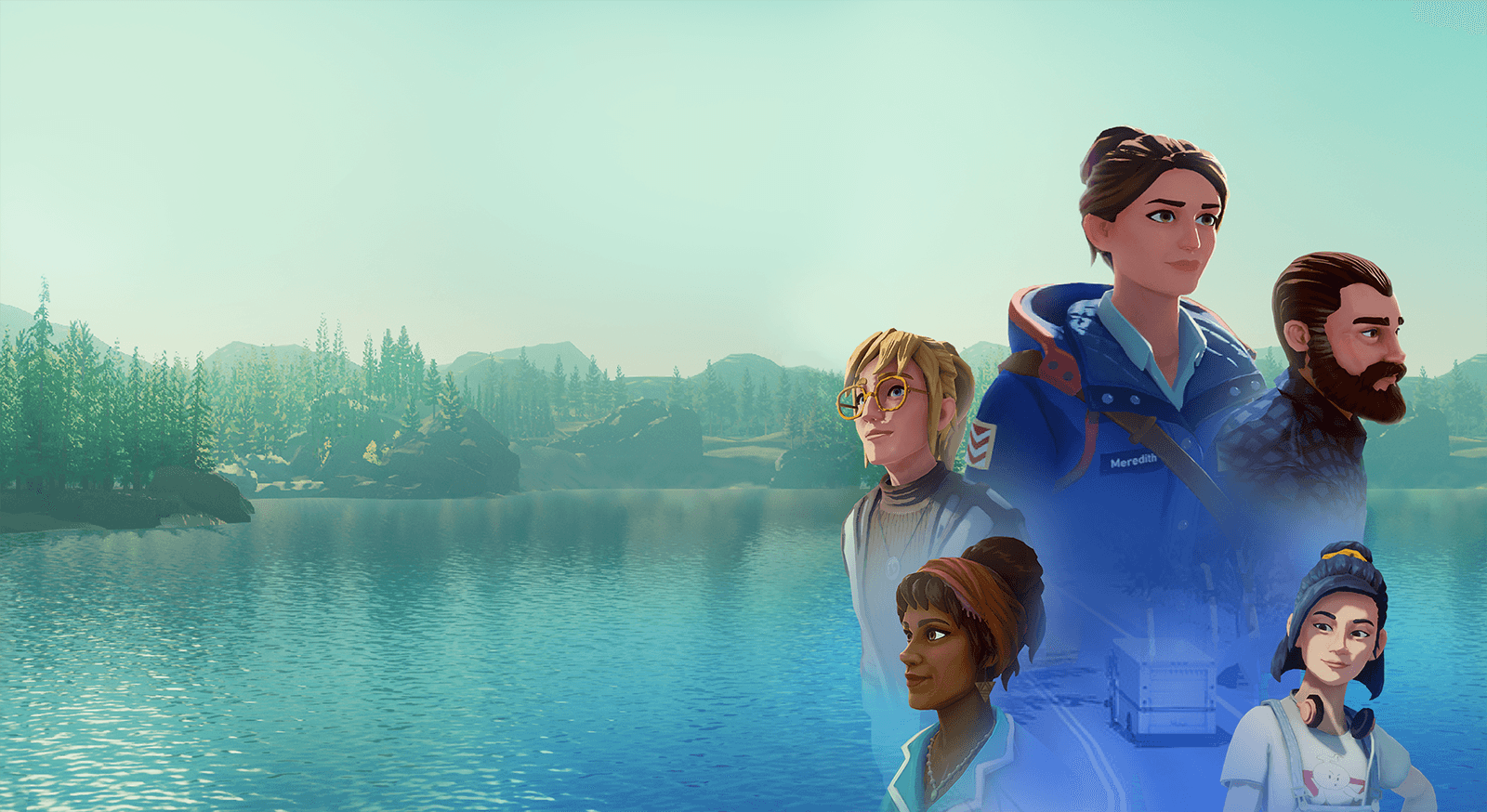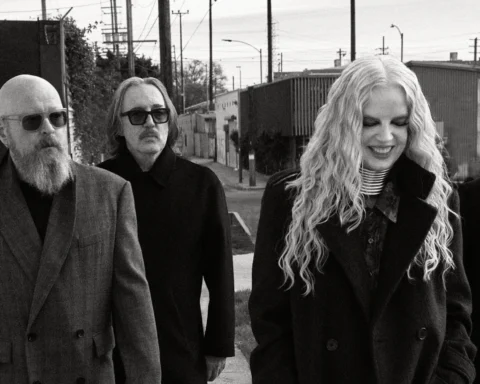Lake by Gamious is more than just a game; it’s a deeply personal journey that resonates with those of us who have felt the tug of nostalgia, the ache of time passing, and the quiet yearning for something simpler. Set in the fictional town of Providence Oaks, Oregon, the game invites you to step into the shoes of Meredith Weiss, a woman in her forties who, much like many of us at some point in our lives, is searching for clarity, for meaning, in the wake of years spent pursuing what was supposed to be success.
When I first began playing Lake, I was struck by how different it felt from anything I’d played before. There was no urgency, no pressure, no imminent disaster looming on the horizon. Instead, the game offered something rare in today’s world: a chance to slow down, to breathe, and to simply exist in a space that feels achingly familiar yet distant, like returning to your childhood home after years away.
Meredith’s story, in many ways, mirrors our own stories. After spending two decades in the high-paced world of software development, she returns to her small hometown to take over her father’s job as the local mail carrier for two weeks. This might sound like an odd premise for a game, especially in an era where games often compete for attention with explosive action or intricate puzzles. But what Lake offers is something more subtle, more introspective. It’s not just a game about delivering mail—it’s a game about delivering yourself back to a place where life makes sense again, if only for a little while.
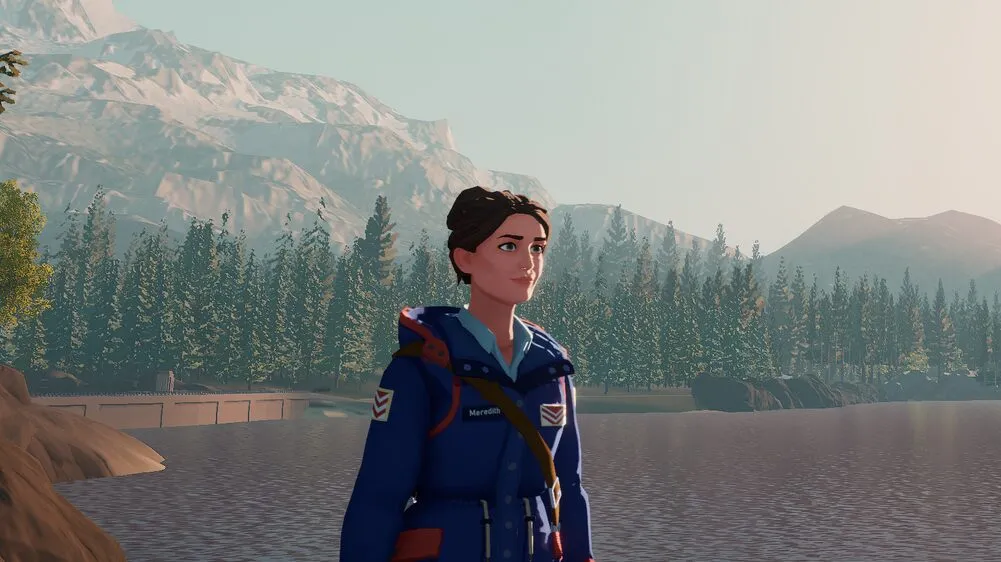
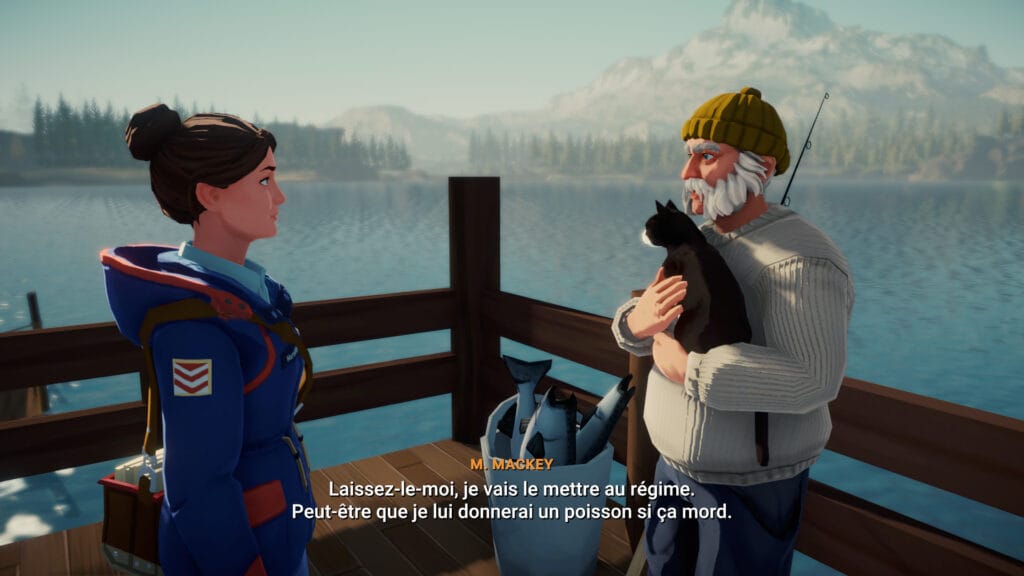
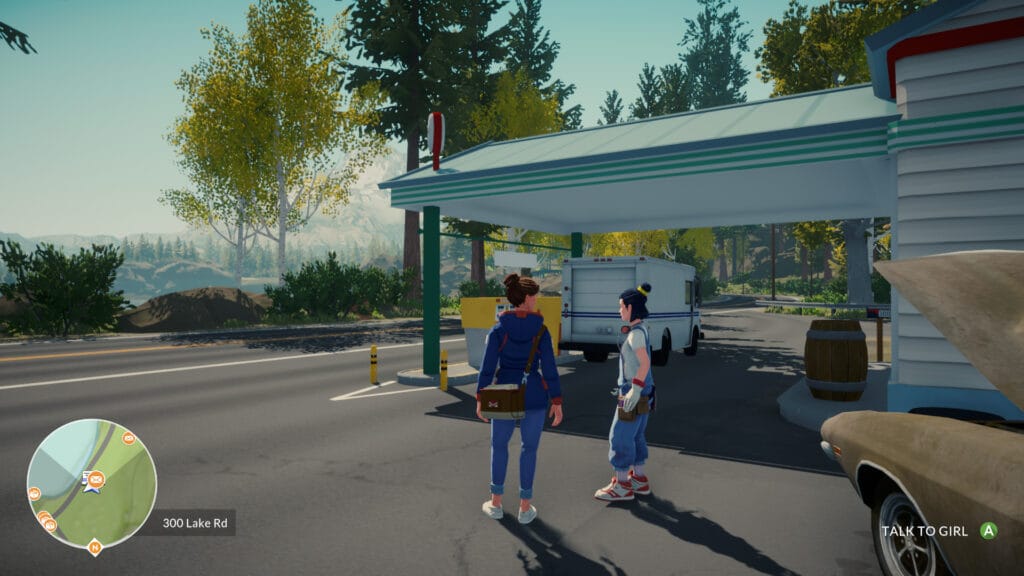
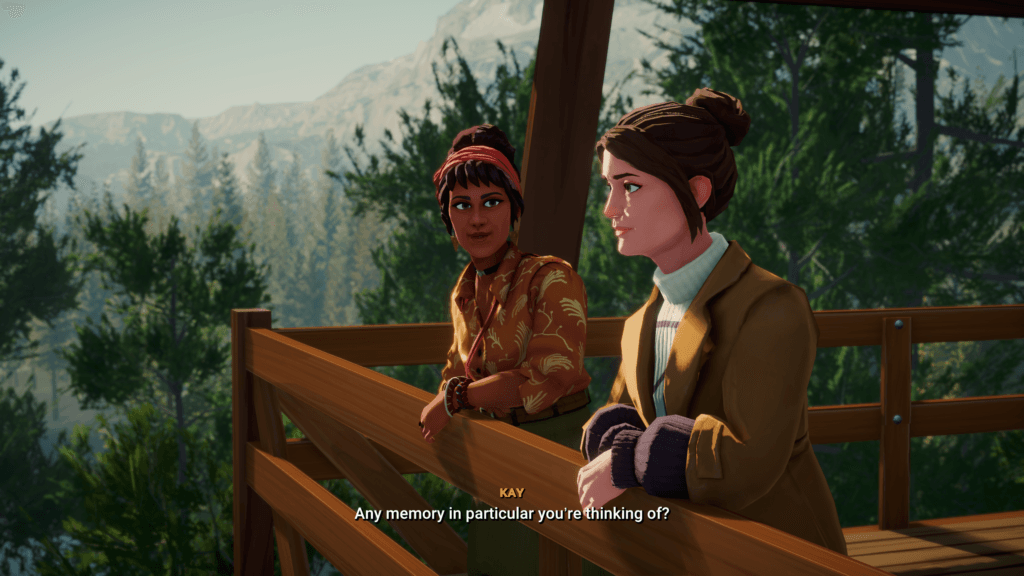
A Story About Reflection
As Meredith, you’re given the freedom to drive around Providence Oaks in a mail truck that feels like an old friend—reliable, a bit clunky, and wonderfully familiar. Each delivery becomes an opportunity to reconnect with the past, to see how the town has changed and how it has stayed the same. The residents of Providence Oaks are not just NPCs; they are fragments of Meredith’s past, each carrying their own stories of joy, loss, and the quiet acceptance of life’s unpredictable turns.
These interactions are where Lake truly shines. Every conversation, every choice you make, feels personal. I found myself lingering on dialogue options, wondering what Meredith’s words might say about the woman she’s become—or the woman she used to be. Do you rekindle old friendships, or do you keep a polite distance? Do you encourage an old friend to chase their dreams, or do you advise them to play it safe? These are not just choices for the character—they feel like choices for yourself, as if you’re trying to find your own place in a world that has moved on without you.
The beauty of Lake lies in its understanding that life is not always about grand gestures or dramatic transformations. Sometimes, life is about the small moments—the casual conversation with an old friend, the familiar route you take every day, the quiet satisfaction of a task well done. These moments accumulate, becoming the foundation upon which our lives are built. Meredith’s journey is one of those small, personal stories that so many of us live, but rarely see reflected in media. And that’s what makes it so impactful.
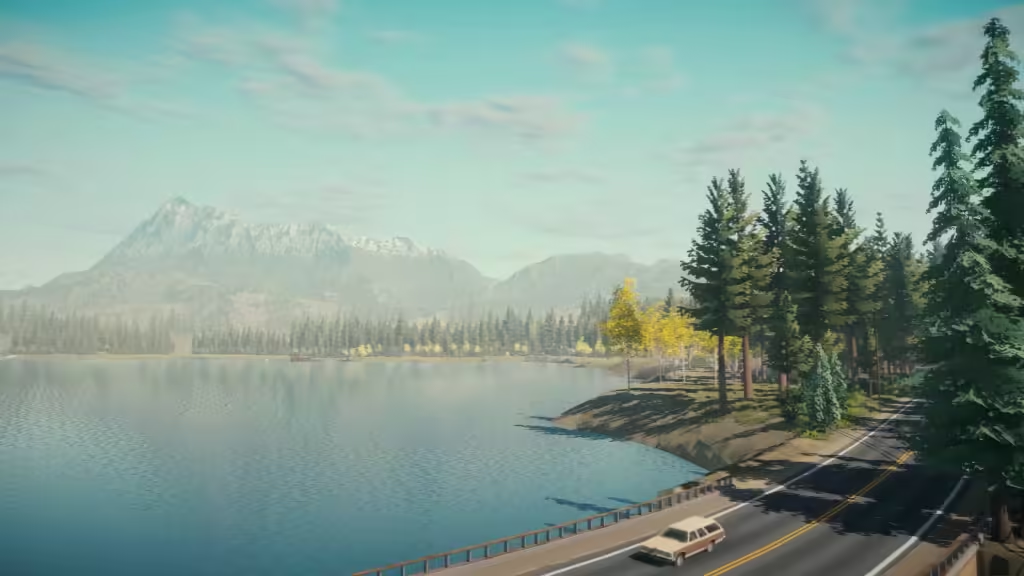
The Quiet Joy of Routine
The gameplay in Lake is deliberately understated, almost meditative. As Meredith, you drive around town, delivering mail, chatting with residents, and occasionally making decisions that will shape the rest of her time in Providence Oaks. There’s a rhythm to it, a calming routine that feels like a warm cup of tea on a cold day. It’s comforting in its predictability, in the way it allows you to sink into the experience without the constant need for stimulation.
But this simplicity is deceptive. Each delivery, each route you take, is imbued with a sense of purpose. The mundane becomes meaningful as you realize that these small tasks are what give life its structure. They’re what ground us, what keep us moving forward, even when the future seems uncertain.
I found myself thinking about my own routines, the small tasks that fill my days. There’s a comfort in knowing what comes next, in having a role to play, even if that role is as simple as delivering a letter or having a chat with the local diner owner. Lake captures this sentiment perfectly, reminding us that there is value in the everyday, in the things we often take for granted.
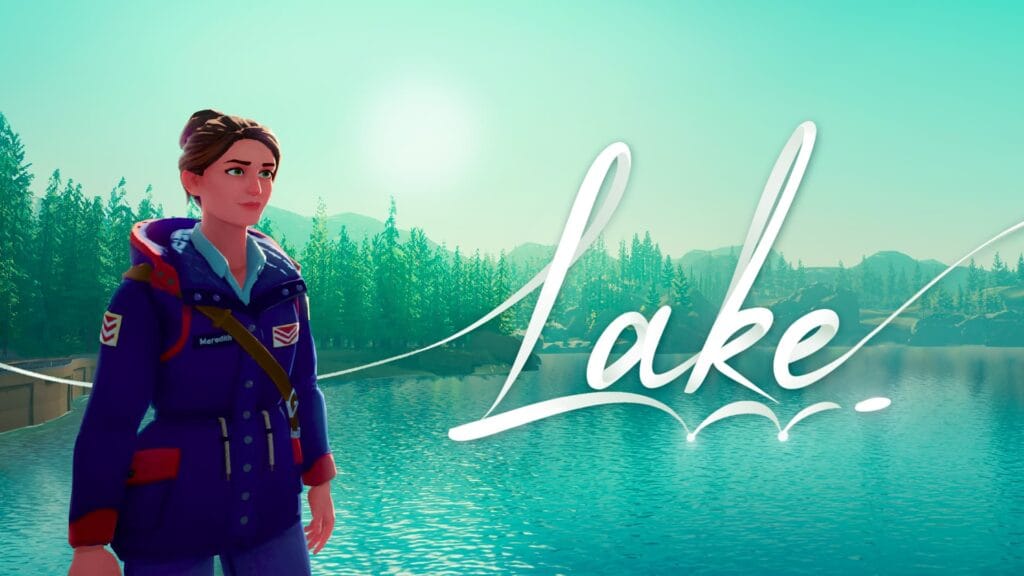
A World That Feels Like Home
Providence Oaks is rendered with a loving attention to detail that makes it feel like a real place, one that you could visit and walk around in. The town is bathed in the soft, golden light of early autumn, with leaves that crunch underfoot and a lake that reflects the sky like a mirror. The soundtrack, a mix of ambient tunes and period-appropriate hits, further immerses you in this world that feels suspended in time, caught between the past and the present.
What I found most striking, though, was how much this place felt like home—not just to Meredith, but to me as well. There’s a sense of peace in Providence Oaks, a kind of sanctuary from the noise and chaos of the world outside. It’s the kind of place where you can hear yourself think, where you can reconnect with the person you were before life became so complicated.
In this way, Lake isn’t just a game about returning to a place; it’s a game about returning to yourself. It’s about remembering who you are beneath all the roles you play, the expectations you carry, and the dreams you’ve put on hold. As Meredith reconnects with her past, she’s also reconnecting with parts of herself that she’s lost along the way. And as you guide her through these moments, you may find yourself doing the same.
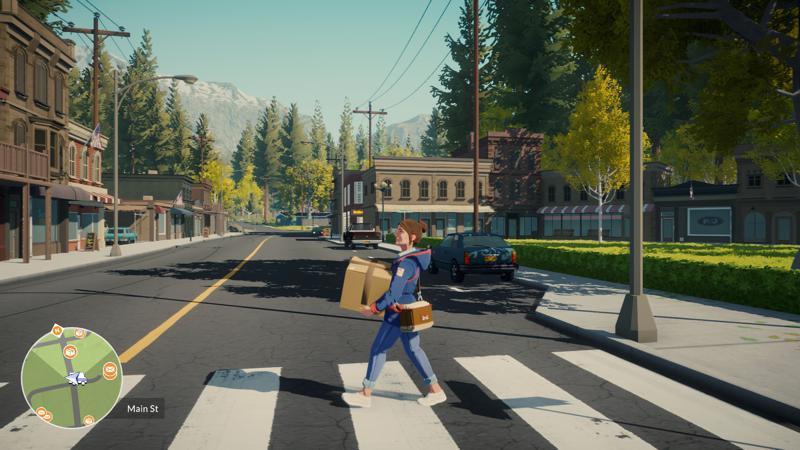

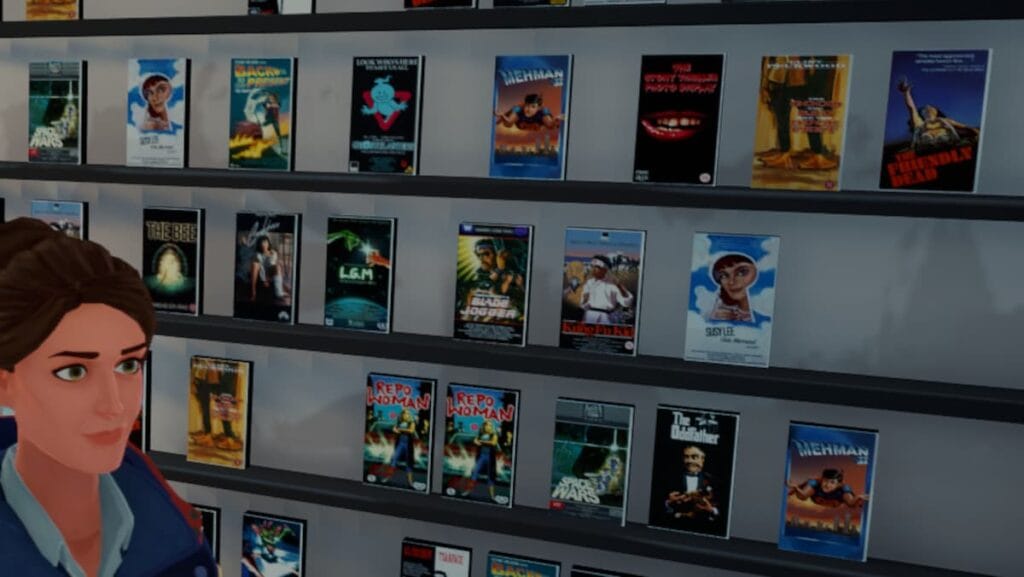
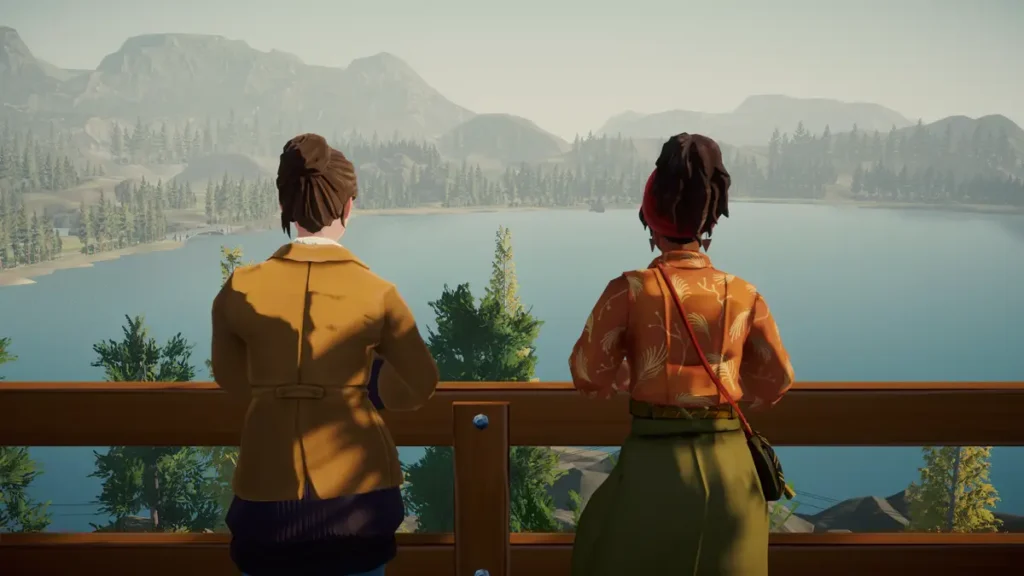
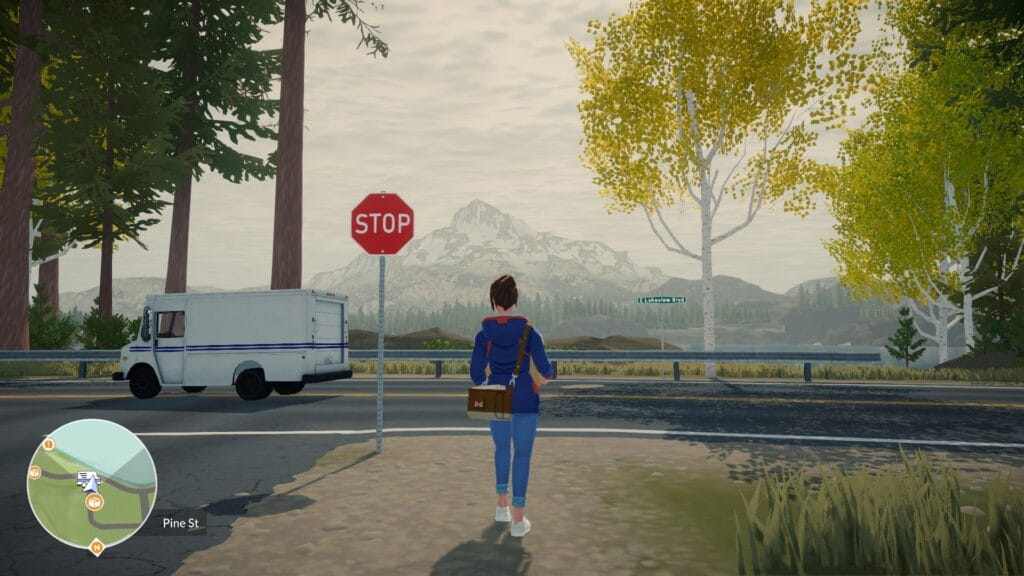
A Conclusion That Lingers
Lake is not a game that everyone will appreciate, and that’s okay. It’s a game that asks you to slow down, to let go of the need for constant excitement, and to simply be present in the moment. For me, it was a reminder that life is not always about the big, dramatic events, but about the small, quiet moments that fill the spaces in between.
As the two weeks in Providence Oaks come to a close, you’re left with choices that will shape Meredith’s future. But these choices are not about winning or losing; they’re about deciding what kind of life you want to lead, what kind of person you want to be. There’s no right answer, no clear path. Just like in life, the decisions you make are deeply personal, and their impact will linger long after the game is over.
In a world that often feels overwhelming, Lake offers a much-needed respite—a chance to pause, to reflect, and to find beauty in the ordinary. It’s a game that speaks to the heart, to the part of us that longs for simplicity, for connection, for a place where we can just be. And in that, Lake is a quiet triumph—a game that reminds us that sometimes, the greatest adventure is finding our way back home.
